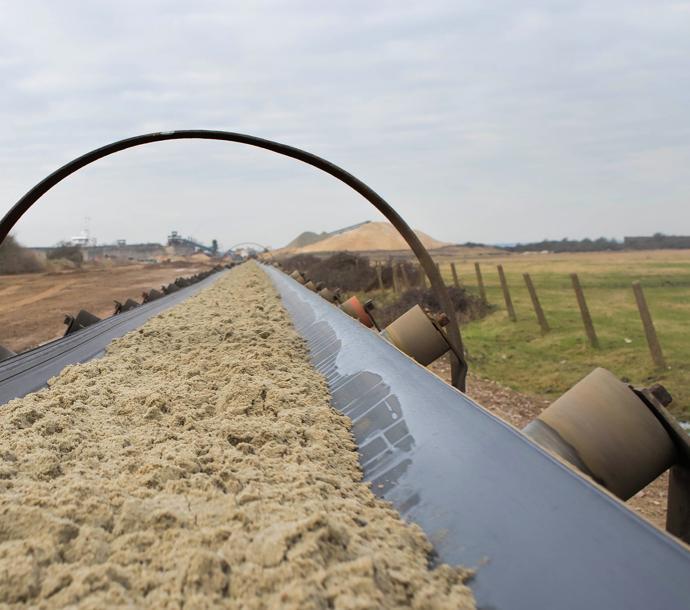
On the road to success with VTA

What does VTA have to do with the economical and environmentally friendly extraction of quartz sand? Quite a lot, as an example from Slovakia proves.
On the road to success with VTA
Whether in the glass industry, foundries or the building materials sector, quartz sand from Šajdikove Humence in western Slovakia is in high demand. There, the company Kerkosand - a subsidiary of Quarzwerke GmbH with its headquarters in Frechen (Germany) - extracts a light-coloured, particularly round-grained raw material.
By washing out organic impurities, foreign substances and accompanying minerals and carrying out further processing steps, it ultimately becomes a high-quality industrial mineral. Up to 100 tonnes per hour are extracted in this way at Kerkosand.
The water required for washing out, around 600 cubic metres per hour, is purified and flows back into large, specially constructed ponds. This is where VTA comes into play: special VTA polymers ensure that suspended solids and contaminants are eliminated upstream of the ponds and that the sludge settles without leaving any residue.
Precisely matched to raw sand
The challenge here is that in order to achieve the optimum effect, the flocculant used must be precisely matched to the raw sand. If there are changes in the composition or cleanliness of the raw material, the polymer must be adjusted accordingly.
Since the start of VTA use at Kerkosand three years ago, the experienced polymer specialist has succeeded in continuously improving the results through constant analyses and ongoing optimisation of the polymer composition, as well as through adaptations to the dosing system.
Today, Kerkosand achieves turbidity values between 50 and 90 NTU - not even a tenth of the initial values at the beginning of VTA dosing, when values of over 1000 NTU were measured. The company's target (100 NTU) is reliably met.
Pond water for production
This is a decisive advantage, as the pond water of this quality can be reused as process water for production. After all, the purity of the production water is crucial for the quality of the quartz sand and quartz flours produced: It must not contain any fine particles that would contaminate the sands.
The recirculation utilisation that is now possible makes the use of groundwater and drinking water in the production of Kerko sand superfluous - a considerable ecological advantage in view of the quantities required. Pond water can even be used for the preparation of the polymer solution, which is carried out in a Eurodos dosing station. At the same time, the dosing quantities of the VTA polymer ensure that it can also be used economically.
Last but not least, for Kerkosand the VTA polymers are already an anticipation of an economic future: because once the raw material reserves are exhausted, the extraction areas and the ponds will have to be renaturalised. Sludge in the ponds, which is contaminated with residues, would then have to be treated and disposed of at immense expense. Thanks to VTA's expertise, this can already be effectively prevented.
Practical report from the VTA Group's knowledge magazine "Der Laubfrosch", issue 75
"It was a very complex project, but the result exceeded our expectations. VTA mastered the project superbly and we are extremely satisfied with the collaboration."

